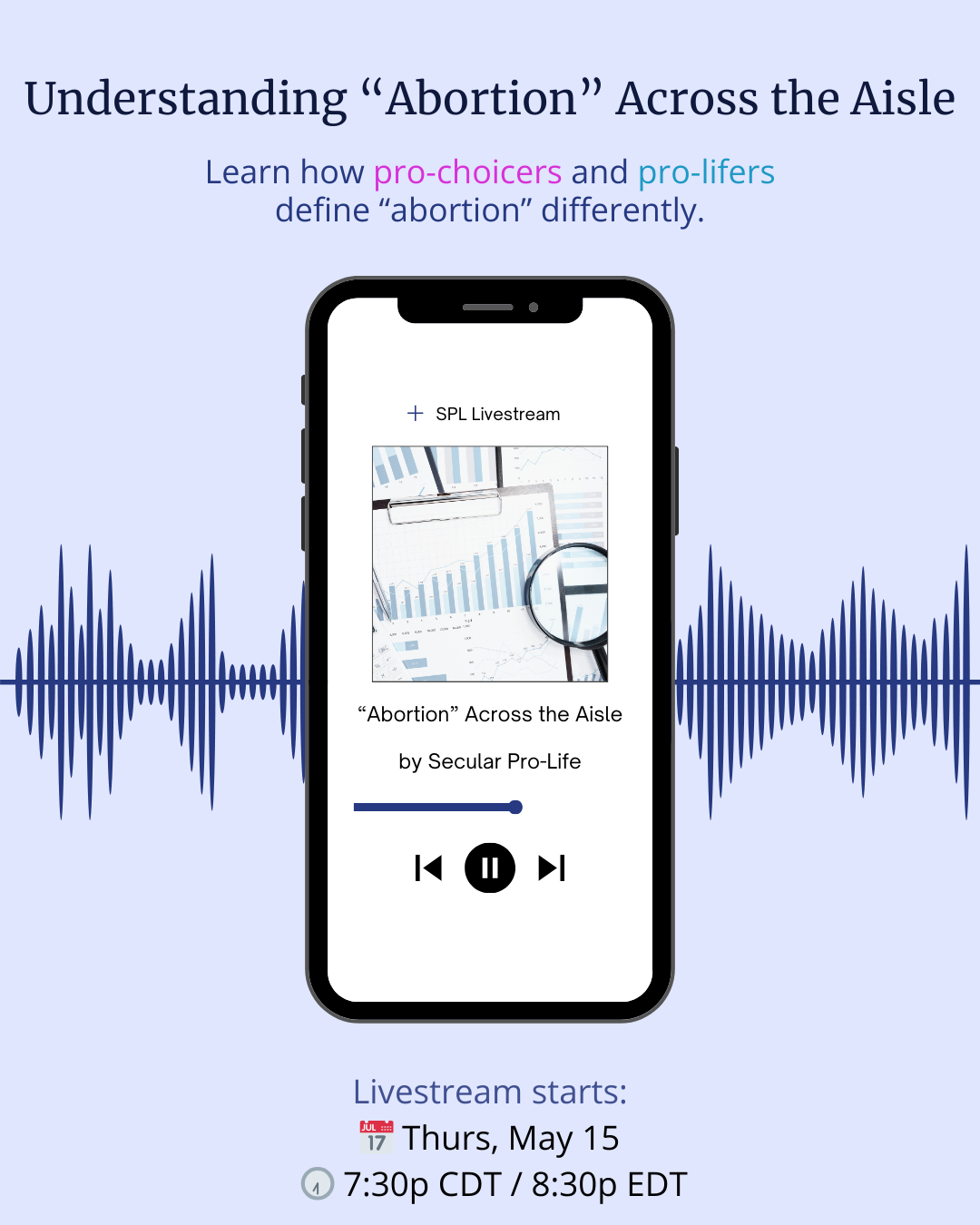Syllogism: right to refuse the use of your body doesn’t justify elective abortion
[This article is a transcript of “The right to refuse the use of your body doesn’t justify elective abortion” courtesy of volunteer Ben Tomlin. If you’re interested in volunteering to transcribe more of our content, please complete our volunteer survey.]
(Video also available on Facebook, TikTok, and Instagram.)
The right to refuse use of your body does not justify putting someone else in a position where they can’t live without use of your body and then killing them, and that means the right to refuse use of your body doesn’t justify elective abortion. Now, that’s the conclusion, but I want to look at this argument in a little bit more detail, especially in the form of a syllogism: so if, if, if, then. There are at least three “if” statements that precede the conclusion.
1. If someone willingly engages in sex, they are risking putting someone else in a position to depend on their body to live
The first “if” is the idea that when someone willingly engages in sex, they are risking putting someone else in a position to depend on their body to live. Some people will push back against that idea by talking about how conception or implantation or these other milestones in reproduction are not within the control of the people who chose to have sex, and therefore they didn’t put someone in a position to depend on their body to live.
[Read more – Consent to Sex is Not Consent to Pregnancy: A Pro-life Woman’s Perspective (Human Defense Initiative)]
2. If abortion is killing (as opposed to letting die)
The second “if” statement is the idea that abortion is killing, if abortion is killing. Some people will argue that it’s not killing, it’s just refusing use of your body, and then the embryo or fetus dies because they aren’t developed enough to survive without the use of your body. So they’ll basically say it’s not killing, it’s letting die.
[Read more – Abortion isn’t just about ending a pregnancy; it’s about killing a fetus.]
3. If abortion is killing someone else (as opposed to something)
The third “if” statement is the idea that abortion is destroying someone else as opposed to something, the idea that abortion is destroying a valuable human being, as opposed to, like, a pre-person or the body of a human being where the mind or the soul hasn’t entered yet. So some people will argue, like, “abortion is not killing someone else. Someone else isn’t depending on your body to live, it’s just an embryo, which isn’t a person.”
[Read more – A Primer on Fetal Personhood and Consciousness]
If all these “if” statements are true, do bodily rights justify abortion?
All three of these “if” statements — the idea that if you have consensual sex, you’re risking someone else depending on your body to live; the idea that abortion is killing something; the idea that abortion is killing someone, a valuable person — all three of those concepts, those are all important discussions worth having. But those are all arguments about the “if” statements, and not the “then” statement.
Remember, the conclusion is that the right to refuse use of your body does not justify putting someone else in a position where they can’t live without use of your body and then killing them. If your response to that is to argue the premises, the “if” statements, that’s fine, but that’s not negating the conclusion. The point of the conclusion is to talk about how the bodily rights argument, the argument that you can refuse the use of your body to other people, it’s not that strong.
Most people will not defend the right to abortion based on bodily rights if they think the other premises are true. They will not say that you can refuse use of your body even if you’re the one that puts someone else in a position where they can’t live without you and then you have to kill them. Most people don’t think that’s justified.
If you appreciate our work and would like to help, one of the most effective ways to do so is to become a monthly donor. You can also give a one time donation here or volunteer with us here.



